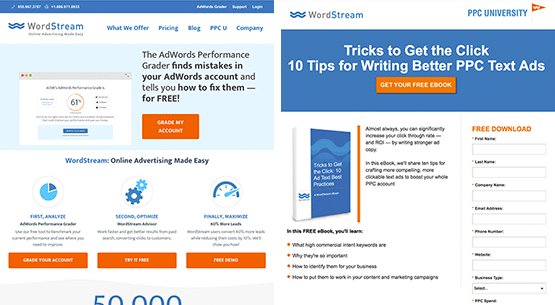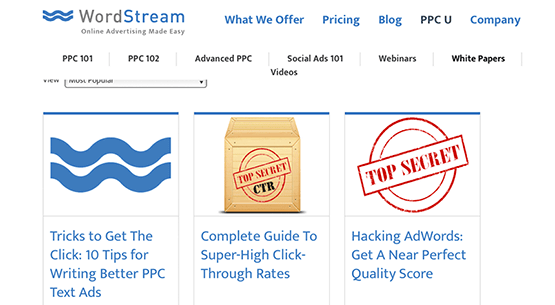B2B branding: Excelling at expertise
While the basic principles of branding remain consistent across companies, organizations focused on B2B markets have particular goals that must be considered when devising an overall strategy. In this white paper, we will focus on B2B marketing and branding strategy, and consider the unique features of the B2B decision-maker whose specialized needs represent the concerns of an entire company rather than an individual. We will first explore the particular nature of the B2B decision-maker and the various considerations that go into his or her decision-making process. We will underscore the primary importance of expertise, emphasizing the ways in which expert knowledge can be integrated with branding at each touchpoint. Throughout, we will highlight a number of B2B companies that have effectively produced a coherent branding strategy across all outlets, considering how personal interaction combines with other forms of marketing and outreach.
The B2B decision-maker
99U: An expert balance
Adobe’s 99U is a content site designed for creative professionals. Initially a blog called Behance (acquired by Adobe in 2012), the division has expanded to include conferences, books on creative productivity, a podcast, and a print magazine. 99U effectively balances sales and content, maintaining an independent presence that targets the customer it knows best with the information and content that customer needs, while still remaining connected to—and branded by—Adobe. There is no strong sales pitch; instead, the division is focused on providing information and strategies to creative professionals, effectively communicating its expertise through a wide range of products and services and a strong mix of media. At each touchpoint, 99U’s mastery of the niche is underscored by its focus on creativity and the ways in which it can support and enhance it.


Branding also provides the customer with the tools to communicate company values to others along the purchasing and supply chain. Like most customers, B2B decision-makers are interested in reputation and security as they consider engaging in a long-term relationship with a given B2B company. Trust matters. And trust, for the B2B decision-maker, is often built through the clear exhibition of expertise rather than through obvious sales pitches. It’s a careful balance, and one that 99U has mastered.
B2B decision-makers tend to be risk-averse and highly exacting about the quality/value ratio and associated tradeoffs in products or services purchased. Low-risk/low-value products need to be carefully considered, but it is the high-risk/high-value purchase, especially in more specialized categories, that require the seller to demonstrate both mastery of the product and expertise in the industry to the decision-maker, who in turn will call on these in explaining his or her decision. Johnson Controls excels in this arena, offering cross-training and internal advancement to its team members to ensure expertise across the company.
Johnson Controls: Centralization and alignment of values
Johnson Controls is a Fortune 500 Company that focuses on automotive and large-building energy systems. Their recent shift to advanced batteries for hybrid and electric cars and operational efficiencies in buildings has prompted a re-evaluation of their overall brand strategy. Building on their long history of innovation dating back to the company’s founder, who invented the thermostat, Johnson Controls is centralizing their various subsidiaries under the motto of operational excellence. They have aligned organizational structure, team member training, and marketing communications along with their vision of early problem identification and solutions—promising fast, efficient, and profitable implementation for their customers. Their centralization efforts reflect their values of innovation and execution, which permeate their entire infrastructure.



Where the knowledge is
In addition to direct interaction with the company itself, customers rank targeted marketing and advertisements very highly as a source of information (see B2B Marketing, 2015). B2B companies can establish and underscore their company values through these media, emphasizing expertise via white papers and guest blogs that offer a more analytic take on products and services. Wordstream, for example, has taken the white paper to a whole new level.
Wordstream: Telling customers what they need to know
Wordstream is a software company that manages PPC (Pay Per Click) campaigns. Their focused marketing targets digital marketing managers, executives, and PPC specialists in large companies and agencies. Most of their content is designed to offer advice that is directly related to their products and services; they have a large library of free white papers, but to download the material, potential customers must provide contact information, business details, and even the PPC spend of their business, which is followed up by personal contact. Thus, outreach (in the form of information and expertise) is targeted specifically at those who would be most able to use the products and services. These customers have an established knowledge base and are best able to appreciate the mastery the company exhibits through their content.


While social media outreach, events, and webinars tend to be less valuable sources of information for B2B decision-makers, these touchpoints ought not to be ignored. Rather, they should be tailored to the specific needs and interests of the customers. Digital outreach serves as a means of increasing awareness of available purchasing options rather than as the sole source of knowledge and information; B2B decision-makers need more depth and greater engagement with people in the company itself. The digital space must be constructed as a complement to—rather than replacement for—more personal and interpersonal interactions with people at every touchpoint.
Marketing strategy must be viewed holistically in every sales environment, particularly as the digital media landscape has increased vendor visibility for customers and decision-makers. But in the case of B2B, there are particular considerations around the needs of the decision-maker and the purchasing business as a whole, given the more complicated stakes for the product and the ways in which it lays the building blocks for a long-term relationship.
And the long-term relationship is particularly vital for the future of the B2B company. Let’s consider why.
IBM’s big idea
Expertise does not have to be overly technical or complicated. It can start with a Big Idea. Consider IBM’s “Smarter Planet” campaign: simple, clear, and effective, connecting on both a rational and emotional level. The idea of smartness underscores IBM’s company values, and the link to the planet makes clear the global reach and international reputation of the brand. IBM supports this brand story through every interaction with its people and its products, encompassing digital support and personal interactions. The company shifted to organizing its major platforms into customer-centric categories partly in response to lagging B2B sales in the 1990s. B2B customers are interested in solutions; IBM was organized around products. As part of its transition, IBM rebranded around solutions rather than products, reigniting its relationship to its core B2B customers.



You, me, and B2B: Building a relationship
Long-term relationships matter for every kind of business, but a B2B company is unlikely to survive without them. There is often a relatively small potential customer base, and these customers tend toward heavier use, meaning that a small number of decision-makers and accounts are enormously important to the company. Again, it comes back to the personal interactions; given the smaller base of accounts, strong relationships are not only possible, but vital. B2B customers actively seek face-to-face contact and immediate feedback given their regular service needs. The B2B relationship is a partnership with consistent communication and interaction. In a practical sense, this means that marketing and sales are both focused heavily on expertise and place great emphasis on relationships.
The B2B purchasing decision is a complicated one with very high stakes for the decision-maker in particular and his or her company more generally. Strong branding minimizes the risk for the individual purchasers, giving them direct access to a given company’s values and reputation when justifying their purchase. Equally important is the B2B firm’s mastery of their own products, given the specific needs of customers in this space. B2B firms also need to demonstrate high levels of expertise across the board as decision-makers seek information about every aspect of the product. Finally, given the technical, logistical, and capital expenses for changing long-term contracts, B2B companies must establish themselves as long-term partners with their customers and must devote resources to nurturing those relationships.
For B2B companies, each touchpoint needs to be configured as a branding opportunity and a buying stream, and both need to be part of the same overall message and shared vision. It’s not an either/or situation—decision-makers interact with the company online and in person, through sales reps and product experts, via targeted marketing and social media. Companies must do it all, finding the right combination for their market and their decision-makers’ needs, taking into account the particular responsibilities of the B2B decision-maker to his or her company, the necessity of building strong long-term relationships, and the ultimate importance of communicating mastery and expertise. At the core of each of these aspects of sales is the clear communication of company values and brand message.
Selected sources:
- Paul Hague, Nick Hague, and Matthew Harrison, “B2B Marketing: What Makes It Special?,” B2B International, accessed December 31, 2015, https://www.b2binternational.com/publications/b2b-marketing/
- Tim Asimos, “9 B2B Marketing Trends to Watch in 2016,” B2B Marketing, accessed December 31, 2015, http://www.business2community.com/b2b-marketing/9-b2b-marketing-trends-watch-2016-01386396#Cli0dLU3h5wpicOC.97
- Tom Whatley, “5 B2B Marketing Strategies for 2015,” Seraph Science, accessed December 31, 2015, http://www.seraphscience.com/5-b2b-marketing-strategies-2015/
- Frank V. Cespedes and Tiffani Bova, “What Salespeople Need to Know About the New B2B Landscape,” Harvard Business Review, accessed December 31, 2015, https://www.hbr.org/2015/08/what-salespeople-need-to-know-about-the-new-b2b-landscape
